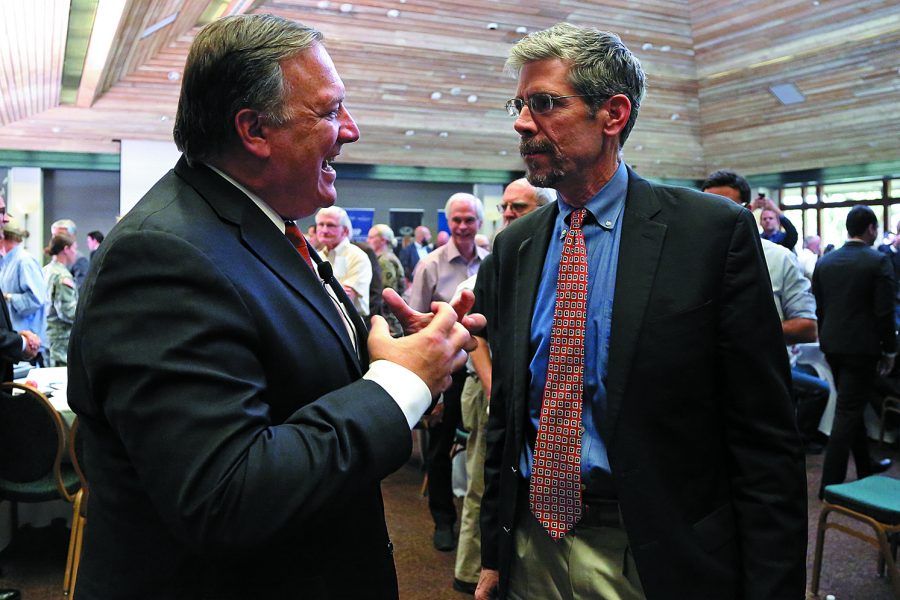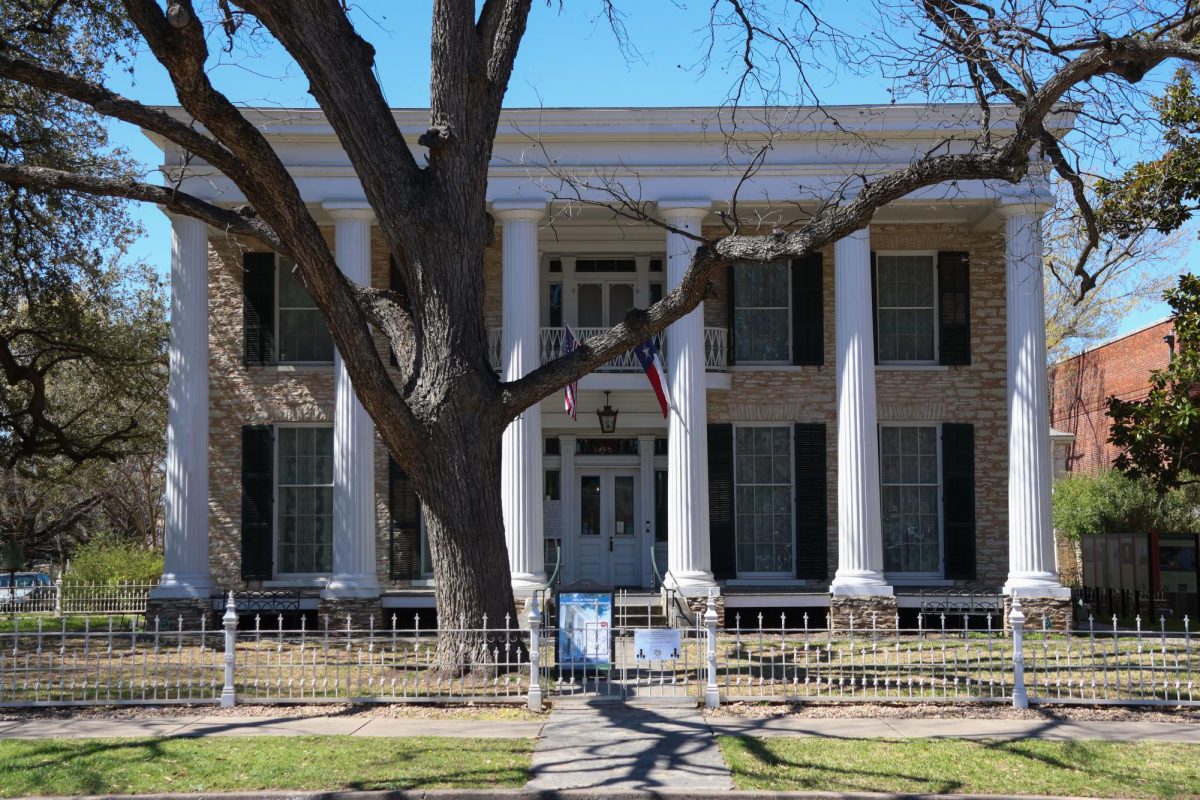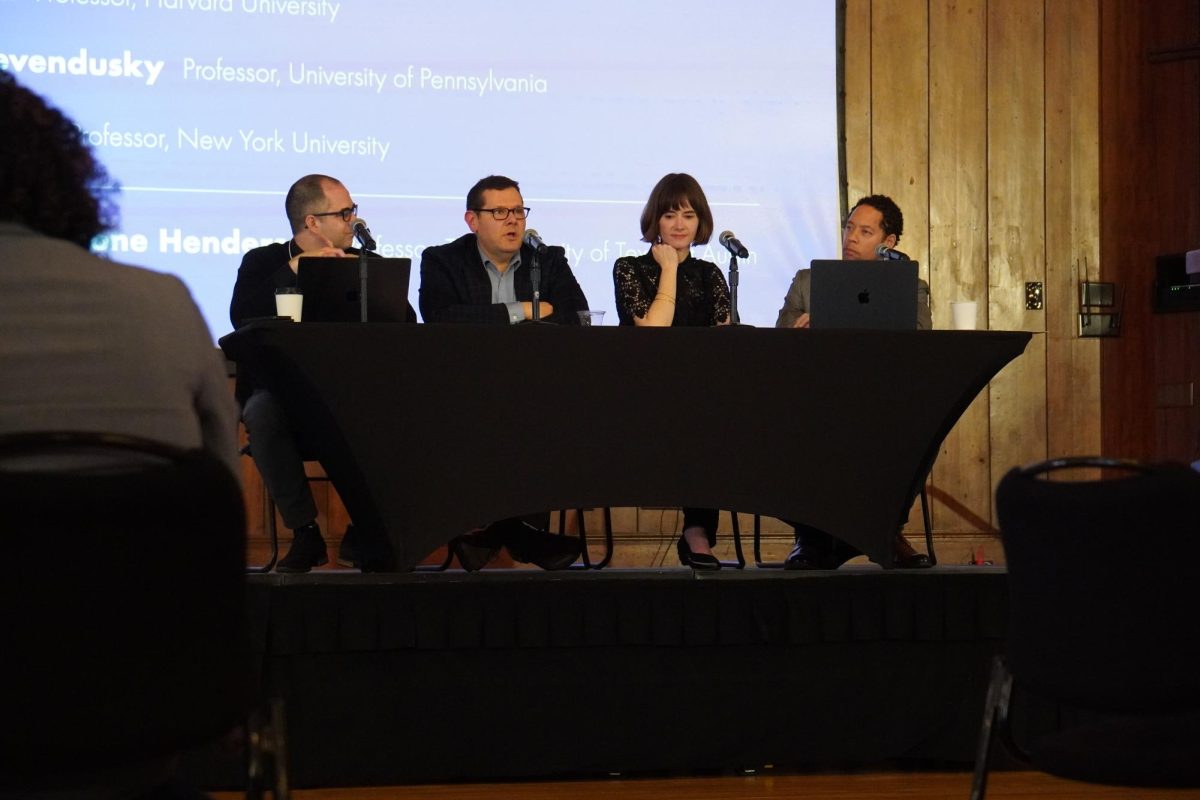CIA director Michael Pompeo said he is working with President Donald Trump to increase the agency’s aggression, speed and number of agents in the field during a speech on the UT campus Thursday afternoon.
Pompeo visited UT as the keynote speaker for the fourth annual Texas National Security Forum. During his speech, Pompeo discussed his goals for future CIA missions and his plan to enact them.
Under threat from Iranian, North Korean, Russian and other foreign intelligence agencies, the CIA will be expanding efforts to strike with increased aggression, Pompeo said during the event.
“We can’t perform our mission if we’re not aggressive, vicious, unforgiving, relentless — you pick the word,” Pompeo said. “Every minute … we have to be focused on crushing our enemies and providing a tremendously unfair advantage for our diplomats, for our military and for our president. It’s why I find so much joy in it.”
The event, hosted by UT’s Robert Strauss Center, Clements Center for National Security and the Clements-Strauss Intelligence Studies Project, was centered around alliances and partnerships in American national security, although Pompeo focused more on offensive strategy.
“We are in the business of stealing secrets … (The business) is inherently aggressive,” Pompeo said.
Pompeo became CIA director in January after being selected by President Trump last year. Prior to that, he worked as a Kansas congressman and a member of the House Intelligence Committee and the Energy and Commerce Committee.
Trump supports the CIA’s intention to increase the number of intelligence agents deployed in foreign countries, Pompeo said.
“Whatever we’ve discussed, the challenges our entity is facing, he has given us what we need,” Pompeo said. “Whether it’s funding, the authority to execute our mission or policy guidance, he has always provided it for us … and he’s prepared to allow us to take risks.”
Pompeo also addressed current CIA relations with the media. He referred to a New York Times article published in June that revealed the name and history of a covert officer. Pompeo said he makes an effort as director to be as transparent as possible, but he finds the publication of the officer’s name to be immoral.
“I am deeply respectful of First Amendment freedoms,” Pompeo said. “But it’s the case that when a newspaper … publishes the name of one of our covert officers, I find that deplorable.”
Sparkle Dennis, an international relations and global studies junior, said Pompeo’s remarks on the article stood out to her the most during the speech. She said although the publication was allowed to print the name, she is not sure she supports the decision to do so.
“It’s not necessarily illegal, but (newspapers) still have a moral obligation,” Dennis said.
International relations sophomore Daniela Cos said that as a student with an interest in national policy, she appreciated the chance to attend the day-long forum.
“It’s a free event that introduces you to so many important people, and you get to ask questions to national security advisers,” Cos said. “As an opportunity for an undergrad, it’s priceless.”





















